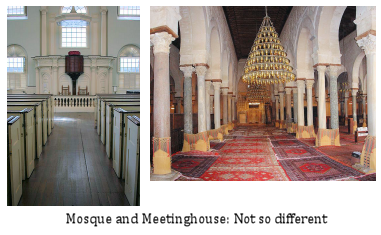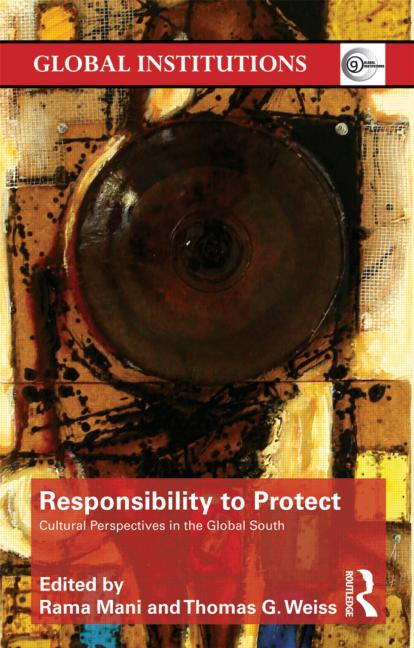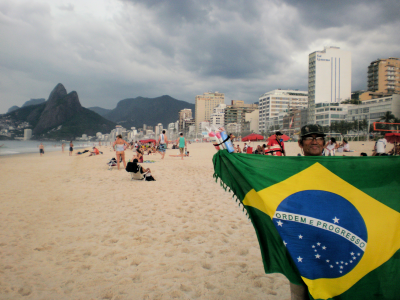David Miliband: offering a vision for the future or a defence of the past?
When David Miliband spoke at the Cambridge Union last week, was he espousing a new, more creative foreign policy or did he simply wish to defend the Bush-Blair approach of the preceding decade? David Miliband has become something of a peripatetic political being. For large parts of the parliamentary year he simply disappears and people begin to ask the ‘what’s he up to now?’ question they asked of Gordon Brown. But suddenly, almost ex nihilo, he appears again and begins a flurry of speaking engagements, interviews and articles all to do, supposedly, with a political cause he has aligned himself to. The cause that prompted him to speak at the Cambridge Union and at other universities, for example, was the …
Is Labour becoming the party of ‘One Nation’ politics?
As the old adage went, the Tories used to be the party of the nation and Labour the party of class. Indeed, the term ‘One Nation’ is an old Tory favourite. Benjamin Disraeli’s description of Victorian Britain in Sybil, his 1845 novel, describes a society divided between the extreme rich and equally extreme poor. It was a compelling literary attempt to address the more undesirable impacts of industrialism, namely the problems of urban poverty and widening social inequalities. But things change. Nowadays, to many, the Tories steadfast adherence to the Thatcherite Treasury views of the 1980s makes the older ‘One Nation’ sentiment more anachronistic. Indeed, bankers seem oblivious to the big society. It seems Labour would be wise to pinch …

Many Trails to Freedom: Islamic Democracy is not an Oxymoron
“I disapprove of what you say, but I will defend to the death your right to say it.” – Voltaire. Over Christmas I visited Boston and had the occasion to walk the famous freedom trail: 3 miles of sights commemorating American independence. As I walked this hallowed ground I pondered on those fighting for freedom today, in the streets of Cairo, Homs and Tunis. Having met some of these people, I wondered at the suspicion we direct at the Islamic parties now gaining power, as if we forgot our own history. American democracy was born of Puritan principles of self-government, but that did not prevent it from evolving into the (more or less) secular body it is today. Ignoring this …
Resource control: Right or Privilege?
‘Resource control is a right. It is not a privilege’ -A member of a peaceful youth rally in the Niger Delta, from the film Sweet Crude. In the first couple of minutes of the opening of the film, Sweet Crude, director, Sandy Cioffi, discloses, ‘this is not the movie I intended to make’. She had travelled to the Niger Delta to film the building the Niger Delta Friendship Library, which was to serve as a ‘symbol of peace’ in the region. While traveling, visiting and listening to local voices, the true value of this library as an empty symbol was revealed. Sandy says, the ‘reality of their lives are far more complex than a community library. Knowing them would change …

On ‘Responsibility to Protect: Cultural Perspectives in the Global South’
At the 2005 UN World Summit, more than 170 Heads of State and Government accepted three interlinked responsibilities, which together constitute the principle of ‘responsibility to protect’ (R2P). First, States accepted the responsibility to protect their own populations from genocide, war crimes, ethnic cleansing and crimes against humanity. Second, States promised to assist each other in fulfilling their domestic protection responsibilities. And third, the international community took on a collective responsibility to react, in a timely and decisive manner, if particular States are manifestly failing to protect their populations from the abovementioned mass atrocity crimes. Despite a quite remarkable normative development (see for example the frequent invocation of R2P in relation to the recent Libya crisis), this R2P principle is …
China’s Politics of Tobacco Control
Recognizing that tobacco consumption has become a leading cause for premature death worldwide, the international community, under the auspice of WHO, successfully developed the Framework Convention on Tobacco Control (FCTC) with unanimous adoption by the 192 member states in May 2003. It is the first time that the Organization has used its constitutional right to develop an internationally legal instrument in global health governance. Therefore, it is a seminal event in global health. It also represents an unprecedented collective action to curb the global tobacco epidemic. The convention came into force in February 2005. With 174 party members covering 87% of the World’s population, the FCTC has been among the most widely and rapidly embraced international conventions devoted to health …

Towards a Realizable Progressive Politics: A Q&A with Dr. Sophie Heine
Dr. Sophie Heine is a visiting scholar at the University of Oxford Department of Politics and International Relations, a Research Fellow at the Universtité Libre de Bruxelles and FNRS and a Wiener-Anspach Foundation Scholar; her research engages with identity politics and ideology in contemporary Europe. Here, she takes a moment to speak with Politics in Spires regarding the Occupy protests of 2011, and offers a preview of her forthcoming book. I. Your recent work, Oser penser à gauche (“Dare to think to the left”), argues that contemporary progressive politics must redefine its underpinning ideology and articulate a coherent, emancipatory platform for change. This analysis proves particularly relevant to the waves of “Occupy” protests that began in New York in October …

Political Reform in Brazil: Challenges and Opportunities
Last year was an extremely positive year for Brazilians. To begin with, Brazil overtook the United Kingdom and became the sixth largest world economy. Such growth came hand in hand with a continuing decrease in poverty and income inequality, and the strengthening of social policies by the recently elected president Dilma Rousseff (Workers Party). While her predecessor, Luiz Inácio Lula da Silva, sought to eradicate famine during his two terms in government, Dilma’s chief social ambition is to combat and eradicate extreme poverty. In line with her government slogan, “A Wealthy Country is a Country Without Poverty,” Dilma’s government transferred £5,8 billion to poor families in its first year in office. Apart from continuing progress in social policies, 2011 was …









